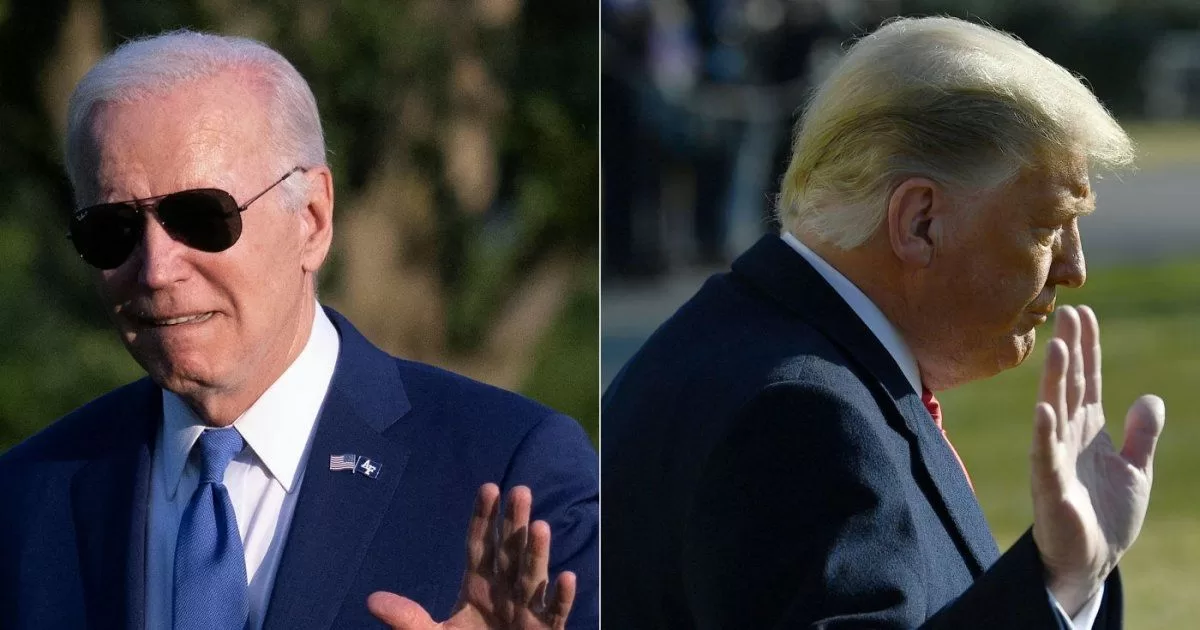Everything indicates that it could cause immense political confusion. The biggest problem would be for the Democrats, they have no one notable to replace Biden who will turn 82 in November, and if he wins the elections he would leave office at 86.
And a voluntary retirement? “It’s an incredibly ridiculous speculation,” says Rachel Bitecofer, a Democratic strategist.
Joe Biden often repeats that he is the best qualified candidate, despite the fact that surveys show that voters are put off by his age, and his episodes of disorientation at public events are another issue of concern.
“What are you supposed to say? ‘Oh, okay. He’s going to do a triathlon tomorrow… Anyway. He’s 81 years old,'” declares Adam Smith, an influential Democratic congressman. “No one notable has come forward against him,” the legislator acknowledges. “So here we are,” he continues.
In the case of former President Donald Trump, he faces dozens of years in prison in several criminal cases due to trials promoted by Democrats in an attempt to stop his political campaign. But the Republican does not seem willing to take a step back, he continues to fight despite the threat of a possible conviction before the elections, something that the Democrats propose.
As?
If Joe Biden or Donald Trump abandoned the race before the end of the primaries, the last word would be the delegates of the two conventions, that is, “8,567 people you have never heard of”, with very different profiles, explains Elaine Kamarck, a researcher at the Brookings Institute, in a recent note.
Democrats experienced a more or less comparable situation on March 31, 1968, when President Lyndon B. Johnson publicly announced that he would not run for a second term, in the middle of the Vietnam War.
In any case, the result of the conventions (the Republican one will take place from July 15 to 18 and the Democratic one from August 19 to 22) is known in advance because each state has held primaries.
If Joe Biden or Donald Trump were to withdraw before the summer, “it would be the kind of convention where all strikes are allowed,” predicts Elaine Kamarck.
What if something happens to the nominated candidate between the convention and the election? In that case the “national committee” of each party would hold an extraordinary session to designate the candidate.
Among Republicans, the party is in the process of remodeling and Donald Trump has suggested placing his daughter-in-law Lara on his leadership team, which would give Trump’s camp enormous weight in choosing a possible replacement.
Who?
This is the most open question.
No rule establishes that the running mate automatically replaces the incumbent candidate.
Joe Biden has already designated Vice President Kamala Harris (with low popularity ratings) to campaign with him, but Donald Trump has not yet made his choice official.
Among Democrats, Kamala Harris, the first woman and African-American in office, could have to face other personalities such as governors Gretchen Whitmer, Josh Shapiro and Gavin Newsom, the latter with the shadow of his terrible management in California.
On the Republican side, “the panel is smaller,” explains Hans Noel, a political science professor at Georgetown University, because the primaries, dominated by Donald Trump, have left their mark, in his opinion.
He mentions the former president’s strong attacks against Florida Governor Ron DeSantis, who has already withdrawn from the race, or against former UN ambassador Nikki Haley, hated by many Trumpists, who still resists.
“Nikki Haley might have been well positioned before, but now anyone who likes Trump won’t like her,” he said.
DeSantis, recognized for the good management of his administration in Florida, supports Trump’s candidacy. The attacks between Haley and Trump have increased. Her point of attack is the age of the former president.
And an independent?
Finally, there is one last scenario: the appearance of an independent candidate.
But so far no independent candidate, even a relatively popular one, has really posed a danger to the two-party system.
In 1992, the Texas businessman Ross Perot, an independent candidate, had obtained, for example, 19% of the popular vote, but he could not obtain any of the votes that really count: those of the 538 electors who, state by state, determine the voting result.
Source: With information from AFP


